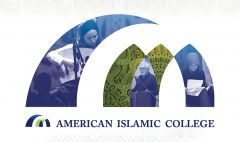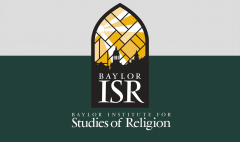The American Academy of Religion (AAR)
February 12, 2017 2023-08-25 21:21The American Academy of Religion (AAR)

The American Academy of Religion (AAR)
In 1909, Professor Ismar J. Peritz of Syracuse University conceived the idea of forming a new organization for professors and scholars of Biblical Studies. Its purpose was to stimulate scholarship and teaching in religion…The group continued to meet under the original name until December of 1922 when members voted to change the name to the National Association of Biblical Instructors, and thereby acquired the acronym NABI (“prophet” in Hebrew) …
By 1963, the association, sparked by dramatic changes in the study of religion, was ready for another transformation. Upon the recommendation of a Self-Study Committee, NABI became the American Academy of Religion (AAR) and was incorporated under this name in 1964. Two years later, the name of the journal was changed to the Journal of the American Academy of Religion (JAAR).
The Academy provides a major publishing program, grants and awards, professional services, an annual North American meeting and ten regional meetings through which it serves its members and the advancement of the field. AAR raises funds to support its projects and services and to carry out its responsibilities as a learned society and professional association. It received 501(c)(3) tax status in 1985.
From a base of four founding members in 1909, the AAR has grown to some 9,000 members today. Members are largely faculty and graduate students at colleges, universities, and divinity schools in North America, with a growing percentage located at institutions of higher education in Asia, Africa, and Europe.
Program Units
Program Units are the organizing research bodies that create the Annual Meeting program each year. AAR has more than 150 program units—a number that reflects the diversity and interdisciplinary of the field of religious studies. Organized and administered by AAR member volunteers, the program units are charged with issuing the annual Call for Papers, reviewing the proposals, and organizing the Annual Meeting sessions. Units are established to encourage the exploration of an area of study or methodology, to cultivate the relation between the study of religion and a cognate discipline, or to pursue a long-range and broad research project. Units are expected to experiment with the format of sessions at the Annual Meeting. Units are approved for five-year terms. Renewals are contingent on making the case that the unit’s work needs to continue. Some units may complete their work in five years; others may continue indefinitely. Units meet for one to five sessions, as determined by the Program Committee for each term. List of Units.
Seminars
Seminars are highly specific projects driven by a collaborative research agenda leading toward publication. The main role of this unit is to foster such collaborations and to do so, where possible, in a public setting that allows auditors to gain insight into the project, the process, and the people involved…
Journal of the American Academy of Religion
The Journal of the American Academy of Religion (JAAR), published by Oxford University Press, is the premier academic journal in the field of religious studies. The AAR’s international quarterly journal publishes top scholarly articles that cover the full range of world religious traditions together with provocative studies of the methodologies by which these traditions are explored. Each issue also contains a large and valuable book review section. JAAR is mailed to all AAR members as a benefit of membership and is available online.
Syllabus Project
The AAR is proud to collaborate with the Wabash Center for Teaching and Learning in its efforts to collect and make available syllabi from various courses across the field. This effort has involved integrating and housing the syllabi once available through the AAR Syllabus Project with the syllabi contained on the Wabash Center’s site.
As of fall 2011, the Syllabus Project has been phased out on the AAR website and members are encouraged to review and submit syllabi through the Wabash Center. This integration will help facilitate improved syllabi updating features along with the development of a larger, more robust database of syllabi on topics related to theology and religious studies.
Contacts
- Address: American Academy of Religion, 825 Houston Mill Rd NE, Atlanta, GA 30329, USA
- Phone: +1 404 727 3049
- Fax: +1 404 727 7959
- Email: info@aarweb.org
- Website: https://www.aarweb.org/








